In today’s fast-paced business world, keeping accurate financial records is crucial. Mistakes in accounting can lead to significant problems, including financial losses and legal issues. This article explores effective strategies for reducing accounting errors in your business, ensuring that your financial practices are both efficient and reliable.
Key Takeaways
- Implement checks and balances to prevent fraud and errors.
- Regular training for staff is essential to maintain accuracy in accounting.
- Utilize automation tools to streamline processes and reduce human mistakes.
Mastering the Art of Checks and Balances

Why Trust Alone Isn't Enough
Let’s face it, trusting your team is great, but it’s not enough to keep your finances safe. You need a solid system in place! Relying solely on trust can lead to mistakes and even fraud. So, what can you do? Here are some tips:
- Separate duties: Make sure no one person has control over all aspects of a financial transaction.
- Regular audits: Schedule periodic checks to catch any discrepancies early.
- Use technology: Implement software that tracks changes and alerts you to unusual activity.
The Magic of Separation of Duties
This is where the magic happens! By dividing responsibilities among different people, you reduce the risk of errors and fraud. For example:
- One person handles cash receipts.
- Another manages the accounting records.
- A third person reconciles the bank statements.
This way, it’s much harder for someone to commit fraud without being noticed. Remember, teamwork makes the dream work—especially when it comes to finances!
Outsourcing: Your Secret Weapon Against Fraud
Sometimes, the best way to protect your business is to bring in the pros. Outsourcing your accounting can be a game-changer. Here’s why:
- Expertise: Professionals know the ins and outs of accounting and can spot issues you might miss.
- Checks and balances: An external team provides an extra layer of oversight.
- Cost-effective: It can save you money in the long run by preventing costly mistakes.
Outsourcing isn’t just about saving time; it’s about safeguarding your business’s financial health.
By mastering these checks and balances, you’ll create a more secure financial environment for your business. So, roll up your sleeves and get to work!
Taming the Beast of Expense Categorization
Avoiding the Dreaded Tax Audit
Let’s face it, nobody wants to be on the receiving end of a tax audit. Properly categorizing your expenses is like putting on your seatbelt before a drive; it’s just smart! When you mix personal and business expenses, you’re asking for trouble. Keep your business expenses separate, and always double-check your entries. A little diligence now can save you from a world of pain later.
The Perils of Misclassification
Misclassifying expenses can lead to some serious headaches. Imagine recording your office supplies as marketing expenses—yikes! This can skew your financial reports and lead to bad decisions. Here are some common misclassifications to avoid:
- Mixing personal and business expenses
- Categorizing long-term assets as operational costs
- Classifying advertising costs as office supplies
Tools to Simplify Your Expense Tracking
In this digital age, there are plenty of tools to help you keep your expenses in check. Using accounting software can automate much of the categorization process, making it easier to track where your money is going. Here’s a quick look at some popular options:
| Tool Name | Features | Price Range |
|---|---|---|
| QuickBooks | Expense tracking, invoicing | $25 – $150 |
| FreshBooks | Time tracking, project management | $15 – $50 |
| Brex | Automated expense management | Varies |
Remember, the right tools can make all the difference in keeping your finances organized and accurate.
By mastering expense categorization, you’ll not only keep the tax man happy but also gain a clearer picture of your business’s financial health. So, roll up your sleeves and get to work!
Harnessing the Power of Automation
From Manual to Magical: Automate Your Way to Accuracy
Let’s face it, manual accounting is like trying to ride a bike with square wheels. Automation is your shiny new set of wheels! It can save you tons of time and help you avoid those pesky human errors. Imagine having software that can handle tasks like bank reconciliations, invoicing, and expense tracking without breaking a sweat. Here’s a quick look at what automation can do for you:
| Task | Manual Time | Automated Time | Savings |
|---|---|---|---|
| Bank Reconciliation | 5 hours/month | 1 hour/month | 4 hours |
| Invoicing | 3 hours/month | 30 minutes/month | 2.5 hours |
| Expense Tracking | 4 hours/month | 1 hour/month | 3 hours |
Balancing Automation with Human Oversight
While automation is fantastic, it’s not a magic wand. You still need a human touch to keep things in check. Think of it as a superhero duo: automation handles the heavy lifting, while you swoop in to make sure everything is running smoothly. Here are some tips to balance the two:
- Regularly review automated reports to catch any anomalies.
- Train your team to understand the software and its outputs.
- Set up alerts for unusual transactions that need your attention.
Choosing the Right Tools for Your Business Needs
Not all automation tools are created equal. You need to find the right fit for your business. Here’s how to choose:
- Identify your pain points: What tasks take up too much time?
- Research options: Look for software that integrates well with your existing systems.
- Test before you invest: Many tools offer free trials. Use them to see what works best for you.
Remember, the goal of automation is to make your life easier, not to add more complexity. So, choose wisely and watch your efficiency soar!
The Importance of Regular Training and Updates

Keeping Up with the Latest Accounting Software
Hey there, savvy business owner! You know how your favorite apps keep getting updates? Well, your accounting software needs that love too! Staying updated with the latest features can save you time and headaches. Think of it as giving your accounting team a shiny new toy that helps them work smarter, not harder.
Training Your Team to Spot Errors
Let’s face it, nobody’s perfect. But with a little training, your team can become error-fighting ninjas! Regular training sessions can help them spot mistakes before they snowball into bigger issues. Here’s a quick list of what to cover:
- Common accounting errors to watch out for
- Best practices for data entry
- How to use new software features effectively
The Role of Continuous Learning in Reducing Mistakes
In the world of accounting, continuous learning is your best friend. It’s like a never-ending quest for knowledge! By fostering a culture of learning, you empower your team to tackle challenges head-on. Remember, an informed team is an effective team.
Investing in your team’s knowledge is like watering a plant; it helps them grow and flourish in their roles!
So, don’t let your accounting practices stagnate. Keep the training wheels on and watch your business thrive!
Wrapping It Up: Keep Those Numbers in Check!
So there you have it! Reducing accounting errors isn’t just about crunching numbers; it’s about creating a system that works for you. By keeping your records tidy, using the right tools, and maybe even getting some outside help, you can dodge those pesky mistakes that can cost you big time. Remember, a little organization goes a long way! So, roll up your sleeves, put on your accountant hat, and let’s make those financial headaches a thing of the past. Your business will thank you for it!
Frequently Asked Questions
What are checks and balances in accounting?
Checks and balances are rules that help make sure no one person has too much control over finances. It means having different people do different jobs, like one person keeps the money and another checks the records.
How can I avoid misclassifying expenses?
To avoid misclassifying expenses, make sure you understand your accounting categories. Keep clear records and use accounting software that helps you categorize expenses correctly.
Why is regular training important for accounting staff?
Regular training helps accounting staff stay updated on new rules and software. It also teaches them how to spot mistakes, which can help reduce errors in the books.







